
News • Kinematic self-replication
Xenobots: first living robots that can reproduce
AI-designed Xenobots reveal an entirely new form of biological self-replication—promising for regenerative medicine.

AI-designed Xenobots reveal an entirely new form of biological self-replication—promising for regenerative medicine.
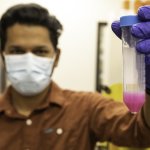
Researchers at the University of Rochester, and Delft University of Technology in the Netherlands recently developed a 3D printing technique to engineer and study biofilms—three-dimensional communities of microorganisms, such as bacteria, that adhere to surfaces. The research provides important information for creating synthetic materials and in developing drugs to fight the negative effects of…

Bitter taste receptors do not only support humans in tasting. They are also found on cancer cells. A team led by Veronika Somoza from the Faculty of Chemistry at the University of Vienna and the German Leibniz Institute for Food Systems Biology at the Technical University of Munich has investigated the role they play there. For this purpose, the scientists compiled and evaluated extensive…
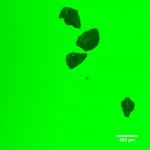
According to scientists at Rice University’s George R. Brown School of Engineering, discarded polystyrene broken down into microplastics provides a cozy home not only for microbes and chemical contaminants but also for the free-floating genetic materials that deliver to bacteria the gift of resistance.
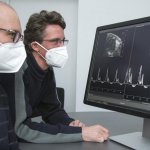
Heart failure with preserved ejection fraction was previously considered largely untreatable. A research team at the Max Delbrück Center for Molecular Medicine in the Helmholtz Association (MDC) led by Professor Michael Gotthardt has now succeeded for the first time in improving cardiac function with the help of a synthetic nucleic acid, as the researchers report in the journal Science…

A stethoscope is one of a doctor's most important instruments, but there haven't been any fundamental improvements in the device itself since the 1960s. Now, researchers at Aalto University have developed a device that analyses a broad range of bodily functions and offers the doctor a probable diagnosis, as well as suggestions for appropriate further examinations. The researchers believe that the…
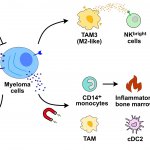
In multiple myeloma, a cancer of the bone marrow, relapse almost always occurs after treatment. Initially, most patients respond well to therapy. However, as the disease progresses, resistant cancer cells spread in the bone marrow, with fatal consequences for the patients. Scientists at the German Cancer Research Center (DKFZ), Heidelberg University Hospital (UKHD) and the National Center for…

Artificial intelligence-based technique reveals previously unknown cell components that may provide new clues to human development and disease.

Treating diseases such as Alzheimer’s or Parkinson’s is a challenge because drugs have to be able to cross the blood–brain barrier. As a result, the doses administered must be high and only a small fraction reaches the brain, which can lead to significant systemic side effects.

There has been a "positive shift" in inclusive gender practices in Covid-19 vaccine research, but there is still room for improvement, experts say. Women have been equally recruited and represented in randomised control trial research about Covid-19 vaccine safety, efficacy and effectiveness, according to a new study by The George Institute for Global Health and The Australian National…

The risk of early breast cancer spreading to another part of the body ranges from 6% to 22%, according to the first results of a large and detailed global study of metastatic breast cancer presented at the Advanced Breast Cancer Sixth International Consensus Conference (ABC 6). The study also shows that certain women face a higher risk than others, including women diagnosed with breast cancer at…
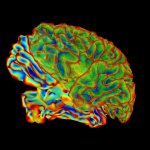
For the first time, researchers have used human data to quantify the speed of different processes that lead to Alzheimer’s disease and found that it develops in a very different way than previously thought. Their results could have important implications for the development of potential treatments.

A study by the Universities of Basel and Saarland shows that there is almost no risk of transmission of the Covid-19 virus on the field. They suggest that blanket quarantine measures for opposing teams are not justified if no close contact has taken place off the playing field. Governments have introduced various measures over the past 18 months in an effort to curb transmission of the Covid-19…
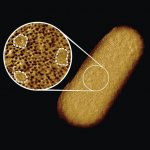
The sharpest images ever of living bacteria have been recorded by researchers at University College London, revealing the complex architecture of the protective layer that surrounds many bacteria and makes them harder to be killed by antibiotics.
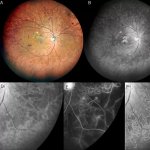
Researchers from Tokyo Medical and Dental University (TMDU) demonstrate a thorough and non-invasive imaging technique to identify areas of the eye affected by diabetic retinopathy (DR), a progressive eye disease associated with diabetes and a leading cause of blindness. The researchers have found that blue light can be used to probe the depths of the eye and uncover areas affected by DR.
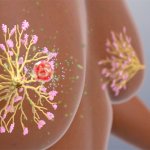
Researchers from Cleveland Clinic have opened a novel study for a vaccine aimed at eventually preventing triple-negative breast cancer, the most aggressive and lethal form of the disease. This phase I trial is designed to determine the maximum tolerated dose of the vaccine in patients with early-stage triple-negative breast cancer and to characterize and optimize the body’s immune response. The…
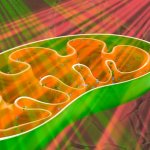
Researchers from the University of Johannesburg find that shining a near-infrared laser on adult stem cells derived from human body fat, makes the stem cells replicate 54% faster.

The mechanisms by which the body measures temperature and regulates its own body heat are vital, but still poorly understood. The discovery of the first heat sensor on nerve cells in the skin, for which the U.S. molecular biologist David Julius received this year's Nobel Prize for Medicine, was therefore pioneering. However, a very similar heat sensor, the protein TRPM2, is active not only in the…

The skin bacterium Staphylococcus aureus often develops antibiotic resistance. It can then cause infections that are difficult to treat. Researchers at the University of Bonn have uncovered an ingenious way in which a certain strain of Staphylococcus aureus protects itself against the important antibiotic vancomycin. The results have now been published in the journal Microbiology Spectrum.

Researchers at the Catharina Heart and Vascular Center, together with Eindhoven University of Technology, have developed a new measurement method to analyze the smallest capillaries of the heart by measuring blood flow and resistance. The new method to assess coronary microcirculation allows cardiologists to make a clearer diagnosis. Until recently, the tests used for this purpose were not…
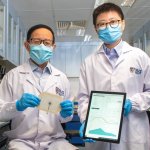
A research team led by Professor Lim Chwee Teck from the National University of Singapore’s (NUS) Department of Biomedical Engineering and Institute for Health Innovation & Technology (iHealthtech), in collaboration with clinical partners from Singapore General Hospital, has developed a smart wearable sensor that can conduct real-time, point-of-care assessment of chronic wounds wirelessly…
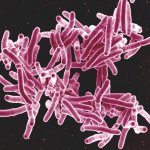
Using cutting-edge genomic sequencing techniques, researchers at the University of Oxford have identified almost all the genomic variation that gives people resistance to 13 of the most common tuberculosis (TB) drug treatments. The Comprehensive Resistance Prediction for Tuberculosis International Consortium (CRyPTIC) research project has collected the largest ever global dataset of clinical M.…

Researchers at the national research institute for mathematics and computer science in the Netherlands (CWI), together with a colleague from Stichting Interuniversitair Micro-Elektronica Centrum (IMEC) in Eindhoven, have achieved a mathematical breakthrough in the computation of so-called spiking neural networks. Thanks to this breakthrough, special chips that are suitable for this artificial…
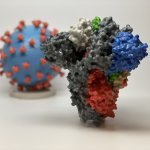
Scientists at Lausanne University Hospital (CHUV) and École polytechnique fédérale de Lausanne (EPFL) have discovered a highly potent monoclonal antibody that targets the SARS-CoV-2 spike protein and is effective at neutralizing all variants of concern identified to date, including the delta variant. Their findings are published in the journal Cell Reports.
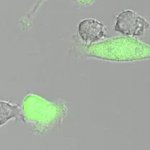
The immune system protects the body from cancer. To protect healthy body cells from its own immune system, they have developed a protective shield: the protein CD47 is a so called "don’t eat me" signal, which tells the immune cells to stand back. Tumor cells exploit this CD47-based protection strategy for evading the immune system, by increasing presentation of CD47 on their cell…